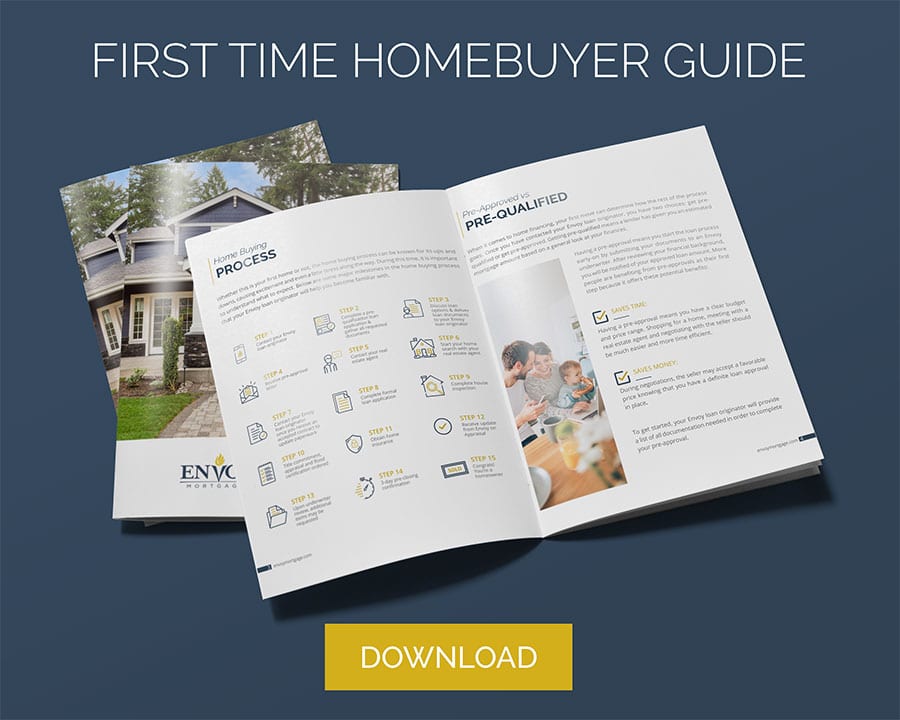Smart Financial Moves all First Time Homebuyers Should Make

Pay with a larger down payment.
While the 20% down payment “requirement” is just a myth, the bottom line is that a higher down payment keeps monthly mortgage payments low and could also win you the bid for a home located in a tight real estate market. Another plus is that making a large down payment is how to avoid paying private mortgage insurance (PMI) payments. This PMI payment is eliminated for all homeowners who have paid at least 20% of the value of a property.
Know the impact of your local housing market.
The location you choose to live in can have a huge impact on your wallet. In major cities where land is scarce, like Manhattan or San Francisco, a home can appreciate very quickly and build wealth in the long-run. On the other hand, typically, homes in suburban areas will offer more square footage for your buck. Do your research in the neighborhoods you are looking to purchase to make sure their short and long-term valuations line up with your homeownership goals.
Know what you are willing to sacrifice.
An urban lifestyle has its perks, like desirable jobs, events, attractions and lifestyles. However, you may have to adjust your affordability guidelines to be able to live inside a metropolis. You may have to wait longer to buy, settle on a smaller home or even live with roommates, (this is way more common now than you think), but there are still ways to achieve your dream of homeownership if you are willing to make a few sacrifices upfront.
Your first home isn’t your dream home.
Whether it be kids on the way, job relocation, new upgrades, lifestyle changes or maybe your next-door-neighbor is really getting on your last nerve, always shop for your first home knowing that it isn’t your forever home. Don’t forget that you can always renovate to make a home larger and unless there is a major structural issue, or the roof is caving in, decide which imperfections you are willing to live with.
Buy less home than you can afford.
Many people have developed the idea that a bigger home equates success. However, many homeowners found out during the 2008 Financial Crisis that less is more. You never know if life could throw a curveball so make sure you can still afford your monthly mortgage payments. Don’t forget to stick to a budget when you start shopping for your first home and always leave a little cushion to allow for spending and expense flexibility.
Calculate the year you will break-even.
If you are wondering if it’s better to rent or buy a house, make sure you crunch the numbers to know how many years it will take you to break-even. This will help you compare the net cost of homeownership and the net cost of renting. Basically, if you end up netting more by owning a home, then it’s time to make the move!
Use our rent vs. buy calculator.
Estimate how long you plan to live in your home.
Know the length of time you plan to live in your new home. If you end up moving before your home has appreciated or before you break-even, you will lose money. The longer you live in your new home, the more the closing costs and purchase fees will be offset.
Download our First Time Homebuyer Guide
Download NowAsk your lender about mortgage points.
When someone talks about “buying down the interest rate,” this is done by purchasing mortgage points. Mortgage points are discount points that you can purchase, reducing the interest rate over the life of your loan. So, are points on a mortgage worth it? If you plan on staying in your new home for a while, mortgage points will save you some cash. To calculate if mortgage points could benefit you, just divide the total loan amount by 100 to determine the cost of each mortgage point. Each point must be paid at closing in addition to the standard closing costs. It is beneficial to ask your lender in advance how many mortgage points they will accept in order to incur a lower monthly interest rate.
Pay more on your mortgage.
If you recently received a financial boost through a raise at work, new job or inheritance, consider putting this money towards paying off your mortgage faster. Make sure these payments are applied to paying down mortgage principal, this way, the extra funds are paid towards equity, not interest charges.
Check if you qualify for any tax breaks.
A homeowner has the potential to receive many tax breaks. To understand which tax breaks you qualify for, schedule an appointment with a tax professional to put together an itemized report.
Here are some tax exclusions you might be able to claim:
- Property tax
- Accounting costs
- Mortgage interest
- Being a veteran/disabled veteran
- Mortgage points deduction
- Income-based tax breaks
Improve the property.
Not every home improvement project will boost your home’s equity. Typically, small projects like replacing entry or garage doors can boost equity quick and cost less, giving you the best return on investment. Other home improvements or add-ons should be considered to evaluate potential ROI, such as, renovating your kitchen versus putting in a new backyard pool.
Know when to sell.
There are many times when the real estate market can get really hot and you can benefit from selling your home, maximizing profit. The key to maximizing this profit is to be in a position where you aren’t too hasty to sell. Financial stability and patience will allow you to wait and purchase a new home at a low rate and sell at a higher rate.
Know about capital gains taxes.
To avoid paying a capital gains tax on a house (aka keep all the money you get from selling your home), you must have owned and lived in your home, as your principal residence, at least two to five years before the resale. Keep this timeline in mind to maximize profits after researching your state’s capital gains tax guidelines.
Make a nest egg.
Your home could eventually appreciate well over its purchase price, leaving you set for retirement. Some people retire, downsize into a smaller home and use their cashed-out equity to travel! Others lease their home to create a source for passive income. It is never too early to start thinking about retirement!
Building wealth is all about spending less than you earn. When you purchase your first home, buy with the future in mind. You can’t predict every financial setback life will throw your way, but with a few quick guidelines, at least you can predict the inevitable costs that come with purchasing a new home.



